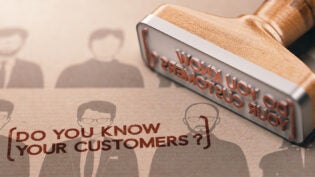
Back in middle school, when I was about 11 or 12, I developed a really bad case of eczema. At first, it was pretty mild, but the doctor in Alabama misdiagnosed my condition and gave me creams that actually made my eczema worse!
Talk about a goof up.
As the eczema spread, I remember being embarrassed to wear short-sleeve shirts to school for fear of my class mates finding out about my condition.
By the time I got to Denver, the eczema was out of control. My thighs, trunk, and arms were covered with patches of irritated skin. It was summer time and we were temporarily living in an apartment.
One day, my brothers and I went down to the pool to swim. Now, if you know anything about eczema, then you know that chlorine is enemy #1. It is not your friend. As I swam, I ignored the pain. Just having fun was distraction enough. But when I got out, the burning started.
Do you know what it’s like to have a persistent burning sensation over a large percentage of your skin?
An hour after I left the pool, I was in so much pain that I was in tears. My mom tried to help, but there wasn’t much she could do. On the bright side, that experience caused my mom to seek out a truly qualified dermatologist to help. When we visited him, he identified the problem immediately. “It’s eczema,” he said.
He knew because he had suffered from eczema, too.
He prescribed three things:
- One lotion for my entire body, every morning and night.
- Another lotion to be applied to each individual eczema spot, every morning and night.
- An Aveeno oatmeal bath or Balnetar tar bath every day.
I followed a daily regimen of creams and baths for more than a year. And, thankfully, the regimen worked. The eczema disappeared, and I’ve been basically free of it ever since.
Now what in the world did this experience teach me about marketing? I’ll tell you…
Marketing Lesson #1: Empathy
To this day, I’ve never met a doctor more empathetic to what I was going through than my dermatologist. Since he had suffered from eczema and other skin conditions himself, he had genuine concern and a genuine desire to help me get better.
I could just feel it.
Empathy is probably one of the most effective yet under-employed “ingredients” in successful marketing. If you can genuinely empathize with your customers, they’re going to feel it.
And when there is genuine empathy, trust goes through the roof—and your customers will do almost anything you ask.
I trusted my dermatologist completely. If he had told me to go bathe in a mountain stream every day, I probably would have done it.
Marketing Lesson #2: Consistency
A year of twice-daily creams and once-daily baths? Are you kidding me?
It would have been very easy to not follow the regimen my dermatologist prescribed. It would have been easy to do it halfway or give up altogether. But I stuck with it, and it paid off.
The same is true in marketing. Many times you can out-profit your competitors just by doing the simple things that count, like consistent follow-up.
You’ve heard that before, right?
“The fortune is in the follow-up” and “Most people buy after 7 points of contact.” That kind of stuff.
The commonality among these maxims is consistency. Consistency is the key.
And just like empathy builds trust, so does consistency. Put them together and you have two key ingredients for marketing success.
Ask yourself, “How can I convey more empathy in my marketing? How can I be more consistent in my marketing and follow-up?” Chances are the answers you come up with will pay off in spades.
This article was originally published by Ryan Healy
Published: November 21, 2013
2150 Views
2150 Views












